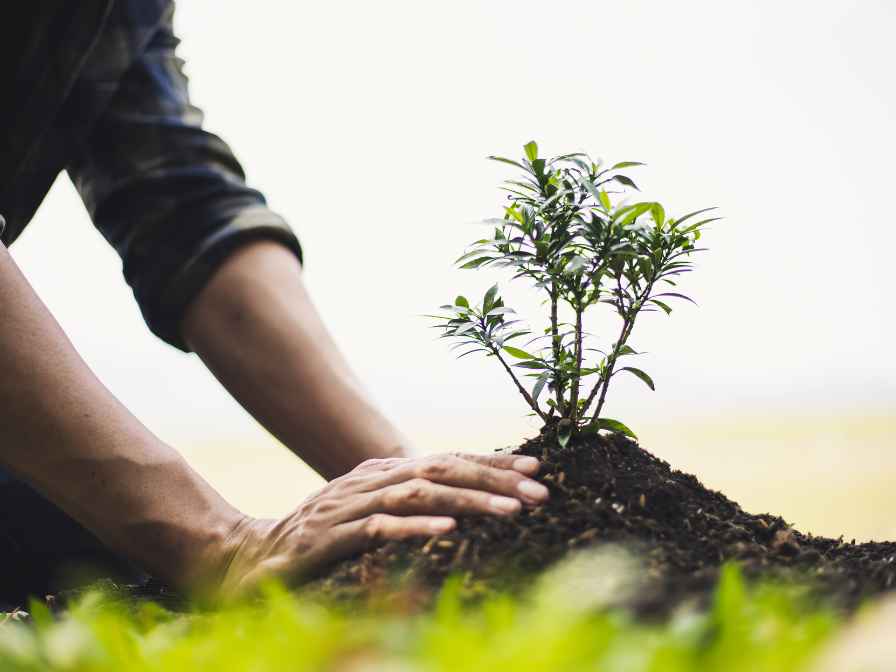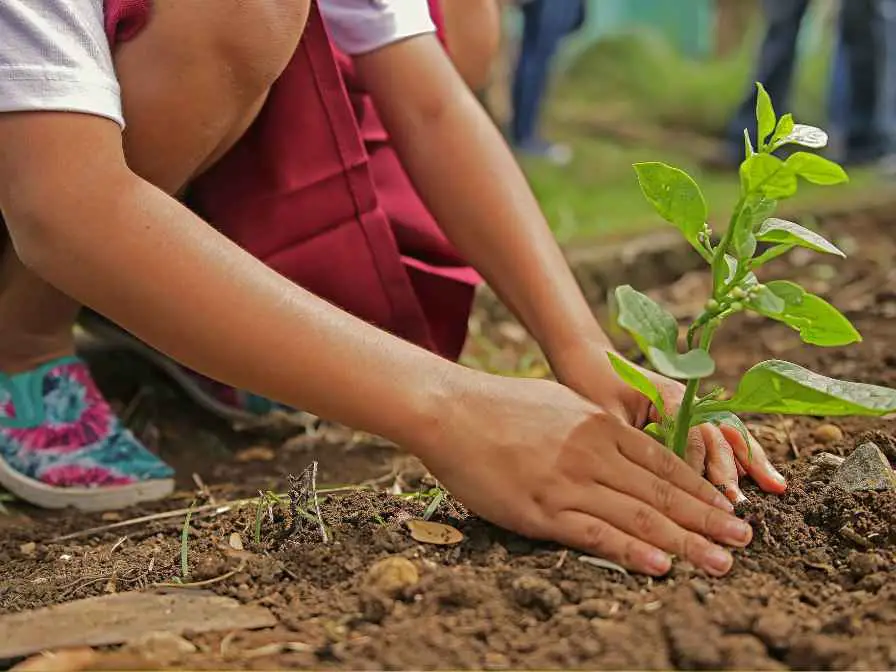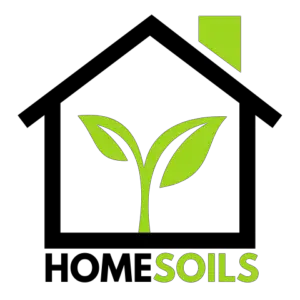Looking to start organic gardening. Yes, it is a very stable and sustainable practice of gardening which is used in the field of gardening. You would be able to enjoy chemical-free gardening. But important is to know about organic gardening for beginners.

Organic Gardening
Without the use of synthetic fertilizers, pesticides, or genetically modified organisms, organic gardening is a technique for cultivating plants. Instead, organic gardeners use organic techniques and supplies to care for and shield their plants, resulting in a sustainable and eco-friendly style of gardening.
Organic gardeners prioritize improving soil fertility through techniques such as composting, mulching, and crop rotation. Compost, which is made from organic waste materials, is used to enrich the soil with essential nutrients, while mulching helps retain moisture and suppress weeds.
Crop rotation involves changing the type of crops grown in a particular area each season to prevent the depletion of nutrients and the buildup of pests and diseases in the soil.
Natural methods are used by organic gardeners to control pests, such as encouraging beneficial insects that prey on harmful pests, using physical barriers like netting or traps, and using natural pesticides made from plant extracts or minerals.
Finally, organic gardening promotes biodiversity and sustainability. Organic gardeners encourage the planting of a wide variety of plants, including native species, to attract diverse wildlife and beneficial insects, and to promote overall ecosystem health. This also helps to reduce reliance on external inputs and creates a self-sustaining ecosystem within the garden.
Benefits of Organic Gardening
There are many benefits of organic gardening. Now people are moving towards this lifestyle of using organically produced fruits and vegetables. Here are some of the main benefits of organic gardening.
Healthier Produce
Organic gardening focuses on building healthy soil using natural methods such as composting, which enriches the soil with essential nutrients. As a result, organic produce tends to be more nutrient-rich and flavorful compared to conventionally grown produce that may rely on synthetic fertilizers
Organic gardening avoids the use of synthetic pesticides, which means that the product is less likely to contain harmful residues, making it healthier for consumption.
Environmental Sustainability
By relying on natural methods and materials, such as composting, mulching, and biological pest control, organic gardening promotes biodiversity, supports beneficial insects and wildlife, and reduces the risk of soil and water contamination from synthetic chemicals
Organic gardening also promotes sustainable practices such as crop rotation, which helps maintain soil health and reduce pests and diseases.
Reduced Exposure to Harmful Chemicals
Organic gardening minimizes the use of synthetic pesticides and herbicides, which can pose health risks to gardeners, their families, and pets, as well as the environment. By choosing organic gardening practices, gardeners can reduce their exposure to potentially harmful chemicals and create a safer and healthier environment for themselves and their communities.
Cost-effective and Sustainable
While initial setup costs for organic gardening may be higher due to the reliance on natural materials and methods, it can be cost-effective and sustainable in the long run. Organic gardening emphasizes practices such as composting and mulching, which can help reduce the need for costly fertilizers and pesticides over time.
Additionally, organic gardening promotes practices such as saving seeds and using natural pest control methods, which can lead to self-sufficiency and reduced reliance on external inputs.
Promotes Biodiversity and Ecosystem Health
Organic gardening promotes biodiversity by encouraging the planting of diverse plant species, including native plants, which provide a habitat for beneficial insects, birds, and other wildlife.
This helps create a balanced ecosystem within the garden, where natural predators can keep pest populations in check. Organic gardening also avoids the use of chemical pesticides that can harm beneficial insects, pollinators, and other wildlife, contributing to overall ecosystem health.
Supports Sustainable and Regenerative Agriculture
Organic gardening is part of a larger movement towards sustainable and regenerative agriculture, which focuses on improving soil health, conserving resources, and reducing the negative impacts of agriculture on the environment.
By practicing organic gardening, gardeners can contribute to the larger goal of promoting sustainable and regenerative agricultural practices that benefit the planet and future generations.
How to Start Organic Gardening For Beginners

Starting organic gardening can be a rewarding experience for beginners. Here are the steps with explanations of how to start organic gardening:
Choose the Right Location
Select a location for your organic garden that receives adequate sunlight, has well-drained soil, and is away from potential sources of pollution such as chemical runoff or air pollution. Consider the type of plants you want to grow and their specific sunlight requirements when choosing the location.
Prepare the Soil
Gardening begins with healthy soil. Test the soil pH and nutrient levels using a soil testing kit, and amend the soil as needed with organic materials such as compost, well-rotted manure, or aged leaves. These organic materials will provide essential nutrients and improve the soil structure, promoting healthy plant growth.
Plan Your Garden
Decide what plants you want to grow in your organic garden and plan the layout accordingly. Consider factors such as spacing requirements, companion planting (where certain plants benefit each other when grown together), and crop rotation (where you alternate plant types in the same area to prevent nutrient depletion and pest build-up).
Choose Organic Seeds or Seedlings
When selecting plants for your organic garden, look for certified organic seeds or seedlings, which are not genetically modified and have not been treated with synthetic chemicals. This ensures that you are starting with truly organic plants.
Plant and Mulch
Plant your seeds or seedlings according to the planting instructions for each type of plant. After planting, apply a layer of organic mulch, such as straw, shredded leaves, or wood chips, around the plants. Mulching is effective for regulating soil temperature, retaining moisture, and suppressing weeds.
Watering Schedule
Water the organic garden plenty and infrequently to make sure good growth of roots and reduce water waste. Avoid overhead watering, which can lead to disease and pest problems. Instead, water at the base of the plants or use drip irrigation to deliver water directly to the roots.
Practice Natural Pest Control
Organic gardening emphasizes natural pest control methods. Encourage beneficial insects, such as ladybugs and lacewings, by planting flowers that attract them and avoiding the use of synthetic pesticides that can harm them
Use physical barriers, such as row covers or netting, to protect plants from pests. If necessary, use organic pest control methods, such as neem oil, diatomaceous earth, or homemade insecticidal soap, sparingly and as a last resort.
Fertilize with Organic Materials
Feed your plants with organic fertilizers, such as compost, well-rotted manure, or organic plant-based fertilizers. These materials provide slow-release nutrients that nourish the plants without harming the soil, water, or beneficial organisms.
Weed Manually
Keep your organic garden weed-free by regularly hand-pulling weeds or using hand tools to remove them. Mulching also helps suppress weed growth.
Practice Sustainable Gardening
Consider implementing sustainable gardening practices, such as saving seeds from your plants, practicing crop rotation, and using cover crops to improve soil fertility and prevent erosion.
Monitor and Observe
Regularly monitor your organic garden for signs of pests, diseases, or nutrient deficiencies. Observe the plant’s growth and adjust your gardening practices accordingly. Healthy plants are less susceptible to pests and diseases, so maintaining healthy soil and plants is crucial in organic gardening.
Harvest and Enjoy
Once your organic plants are ready for harvest, pick them and enjoy the fresh, flavorful, and nutrient-rich produce from your organic garden. Remember to save seeds from open-pollinated plants for next year’s planting, and compost any plant debris to continue nourishing your organic garden.
Starting an organic garden requires patience, observation, and a commitment to sustainable practices. By following these steps, beginners can establish a healthy and environmentally friendly organic garden and enjoy the harvest of their efforts.
In a nutshell, organic gardening is such a practice that should be encouraged for all gardeners whether they are beginners or not. It is because it not only gives you healthy produce but also maintains the ecosystem as well. It is rewarding in both ways.
FAQs
What is organic gardening?
Organic gardening is referred to the gardening practice in which no chemical or synthetic fertilizers, pesticides, herbicides, or any other method of growth or eradication of any plants or weeds is used. It is done by using the natural process available in nature itself.
How do I make my garden soil organic?
There are many methods and products available in the natural system through which you can make your garden soil organic easily. You can use mulching, peat moss, compost, manure, and many others items to make your garden soil organically nutrient-rich soil.
What is the easiest crop to grow organically?
Well, that can be discussed in the whole article. There are many fruits, trees, herbs, shrubs, and vegetables that can be easily grown organically. Peas, carrots, radishes, mint, cilantro, thyme, figs, olives, rosemary, and a lot of other plants can be grown easily in an organic way.

